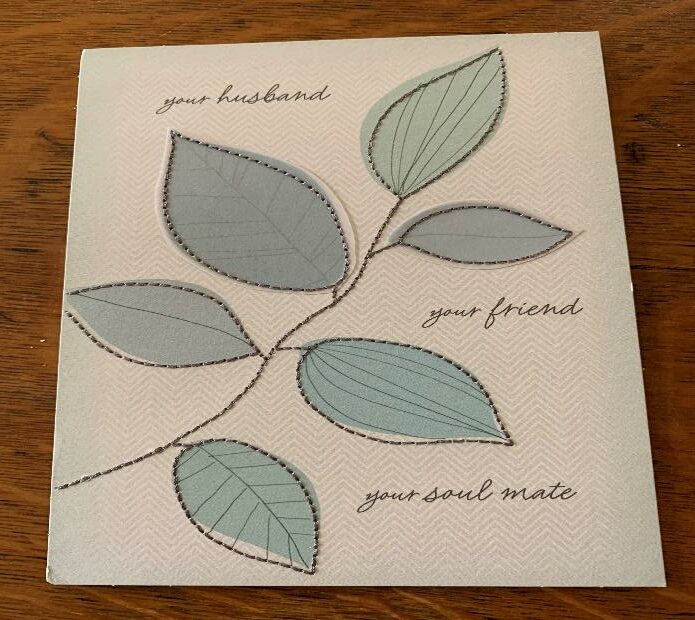Last year, Dave and I celebrated our 47th wedding anniversary. Because of Covid-19, there was no romantic dining or even an overnight stay in Kansas City. But that was okay. Months ahead, I had found the perfect card to hand Dave when we awoke the morning of the special day.
I loved the simplicity of this card. “Your husband…your friend…your soul mate”—all tender words letting Dave know that our love was very much alive and would last forever.
That’s not to say we had not been through some valleys. It had not been forty-seven years of bliss. We had made many mistakes in failing to honor God first. We had blamed and argued. We had gone to bed angry. I had used silence to make my point, put the kids ahead of Dave’s needs, stubbornly insisted on my way and forgotten to laugh. But somehow, we had endured, forgiven and stayed the marital course. We were friends. We were soulmates. The card said it all.
That morning, I hid away in the bedroom where I wrote something tender in Dave’s card. That’s when I read the insert: “With sympathy as you say good-bye to the man who shared your life.” I read it three times.
WHAT??? How was this possible? How had I confused a sympathy card with an anniversary one?
Within a minute of staring at the writing, hoping, I guess, that it would morph into something endearing, I started laughing. After sharing it with Dave who pretended to find it funny, I knew that he had to wonder how such a blunder, even for me, was doable.
I have no explanation. I buy cards ahead of time and pull from my collection for whatever occasion is celebrated. Not this card. It was taken from the stash ahead of time and hidden in my drawer. Obviously, I assumed it said something different than it did (and yes, the fact that it started with “your” husband instead of “my” husband should have been my first clue). Had I just taken the time to double-check my assumption, this never would have happened.
My failure was a minor one. No one was hurt by my mistake, but many times that’s not the case. We make costly assumptions all the time, causing us to judge. The person with the handicap sticker who shows no visible impairments. The rude waitress. The beggar on the street corner talking on his cell phone. Read the New Testament. Incorrect assumptions about what the Messiah would be like caused most people not to give Jesus a chance. I have friends who assume there is no God because they can’t see proof. Others believe they will make it to Heaven because they are “good people.”
Any assumption, funny or serious, warrants the time it takes to be validated…which makes me question which of my grandkids probably received an anniversary card instead of a birthday one.

